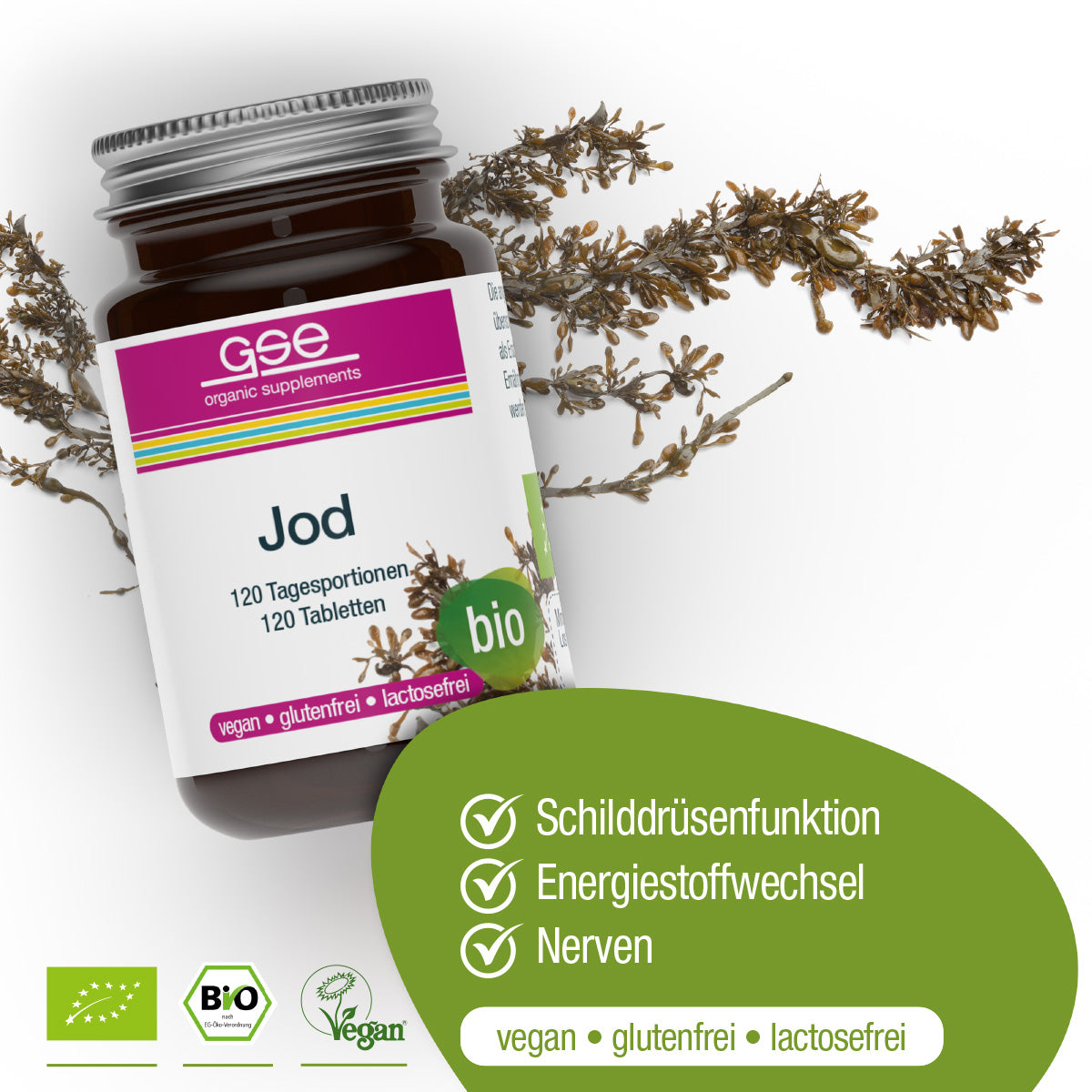Iodine:
Drive for metabolism and thyroid gland
Iodine is an essential trace element that is particularly important for the normal function of the thyroid gland. The thyroid gland needs iodine to produce thyroid hormones, which in turn regulate numerous metabolic processes. Adequate iodine levels also promote normal cognitive development, support the normal functioning of the nervous system and contribute to the maintenance of normal skin. Adequate iodine levels are also crucial during pregnancy.
An iodine deficiency can have serious consequences, e.g. goitre formation due to enlargement of the thyroid gland or developmental delays in children.
Natural sources of iodine are mainly found in seaweed and fish such as cod, tuna and haddock. Eggs and dairy products also contain small amounts of iodine. For vegetarians and vegans, iodized table salt and edible algae are important sources of iodine. As soils in large parts of Europe are low in iodine, the availability of iodine in plant-based foods is limited.
Iodine Health Claims:
- Iodine contributes to normal cognitive function
- Iodine contributes to normal energy metabolism
- Iodine contributes to the normal function of the nervous system
- Iodine contributes to the maintenance of normal skin
- Iodine contributes to the normal production of thyroid hormones and to normal thyroid function
These GSE products contain iodine:












